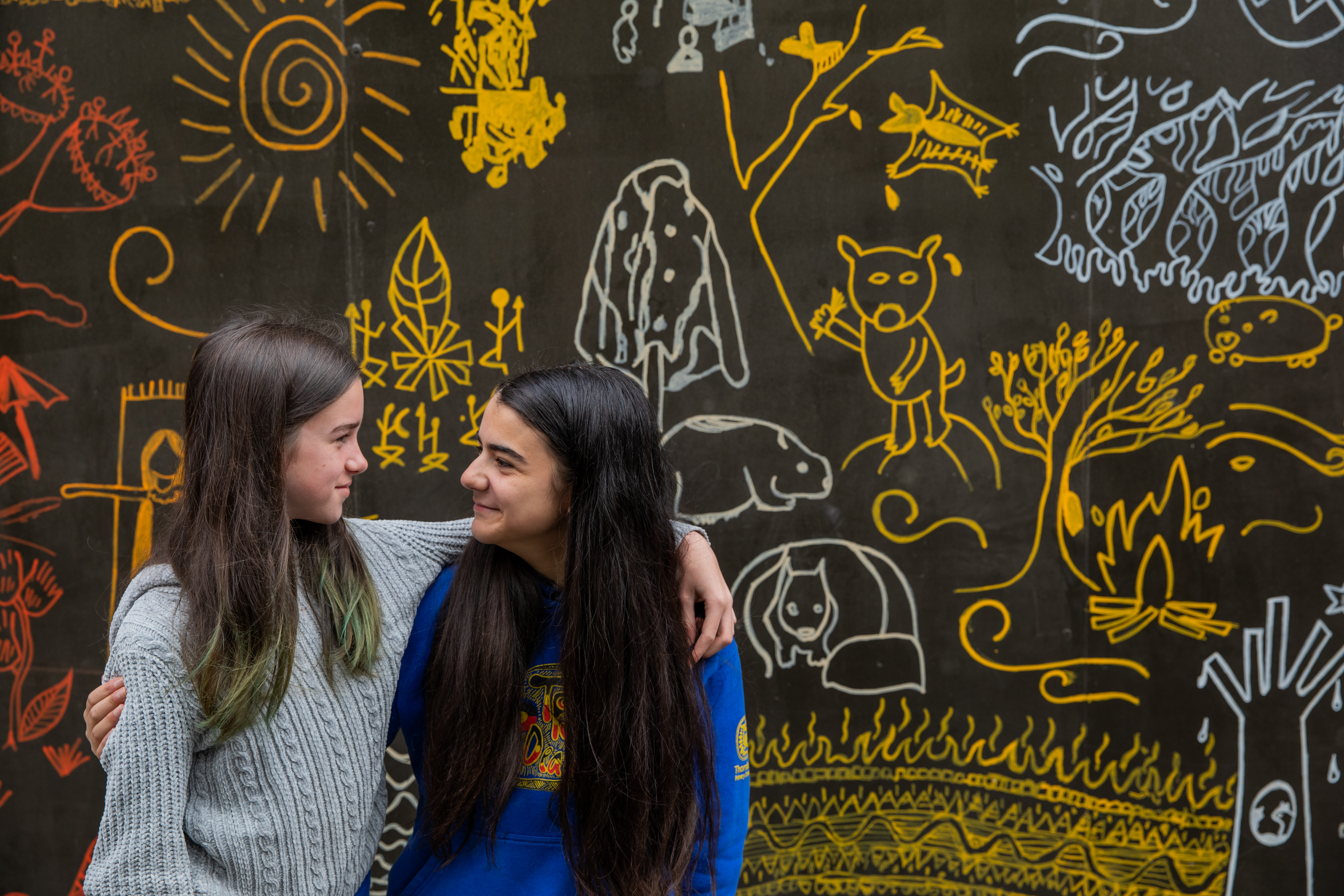On this page
Download this Fact Sheet:
Fact Sheet: The role of schools in supporting students after a traumatic event (3.1 MB, PDF)
Primary and secondary schools are an important protective environment for children and young people who have experienced a traumatic event in the community.
Schools can play a key role in supporting safety and regulation, and re-establishing relationships, after an event such as a bushfire or flood.
The educator's role
As an educator, you are well placed to support children and young people’s recovery by re-establishing relationships and routines, providing tools to develop emotional literacy and encouraging students to process their experience of the traumatic event through play and creative expression.
However, to be effective in this role, it’s important to also look after your own wellbeing.
Daily approaches
Here are 4 ways schools support the regulation and recovery of students after a natural disaster or other traumatic event in the community.
Routines
The return to routines can be comforting for children who have experienced trauma. Routines can provide stability for young people at a time when life is already full of change.
Some strategies for daily routines include:
- Find a balance between a predictable and robust routine and being flexible.
- Use a combination of individual and whole-group activities to help re-engage students, including hands-on learning where possible.
- Set clear expectations at the start of lessons, outlining what will be covered and the ideal outcome.
- Give your students plenty of notice about assignments, deadlines and exams. Let them know as early as possible if there are any changes to those events or other routines.
- Schedule regular ‘brain breaks’ throughout the day. A mix of physical and mental breaks is ideal.
- Support transitions in daily routines, such as students moving between classes or activities. As well, consider how best to support significant transitions, such as teacher changes, moving to a different year level or campus, or older students moving on to further study or work.
Relationships
Re-establishing relationships following a traumatic event in the community can support children and young people’s recovery by providing a sense of safety.
Strengthen daily interactions by:
- greeting them warmly when they arrive
- getting to know them by asking about their interests and lives outside of school
- ensuring their voices are heard and making time to talk about and listen to their feelings and fears
- acknowledging and celebrating individual strengths, aside from academic achievements
- cultivating their social and emotional learning and friendship skills, and providing opportunities for them to practise these
- identifying and supporting a child or young person who is having difficulty connecting, or working, with their peers
- planning activities or creating opportunities for students to work in pairs or small groups to support peer connections at school.
Play and creative expression
Play experiences and creative expression, including painting, drawing, storytelling, dance or performance, can provide children and young people with the opportunity to re-tell their experiences or explore and express their feelings.
The Birdie’s Tree stories and games developed by the Queensland Centre for Perinatal and Infant Mental Health help younger children work through their experience, providing a sense of control.
For older students, structured games and activities that incorporate ‘play’ can help them have fun and relax while supporting connections at school.
Over time, play and creative expression can help children and young people make sense of a traumatic event.
Emotional literacy
An increased focus on teaching ‘emotional literacy’ might help children and young people begin to understand their reactions and responses.
For children, you can:
- discuss what different emotions are called and what these emotions look like
- help them understand how they might physically feel these emotions in their body
- encourage them to recognise and name their emotions.
For young people, you can:
- teach strategies for recognising and naming what they’re feeling, as well as managing how they respond to situations
- provide a safe space for them to process their emotions
- teach resilience, including what it is, why it’s important and how they can ‘grow’ and develop it. For example, look for opportunities for young people to be involved in telling their own story.
Be You resources
For professional development to support children and young people after a natural disaster or other traumatic event in the community, see the Natural disasters and other community trauma module of the Be You Professional Learning.
For strategies to look after your own wellbeing, see Wellbeing tools for educators on the Be You website.
See the learning community story on Empowering children's voice in disaster recovery for how creative expression can support recovery for children and young people after a traumatic event in the community.
-
External links
Birdie’s Tree, Queensland Centre for Perinatal and Infant Mental Health, Children's Health Queensland
How educators can help in the classroom following a traumatic event, Emerging Minds
-
Bibliography
Khalid, H. A. (2019, October). Building resilience in chronic trauma through self-regulation. European Journal of Educational Sciences, Special Edition, 102-115.
